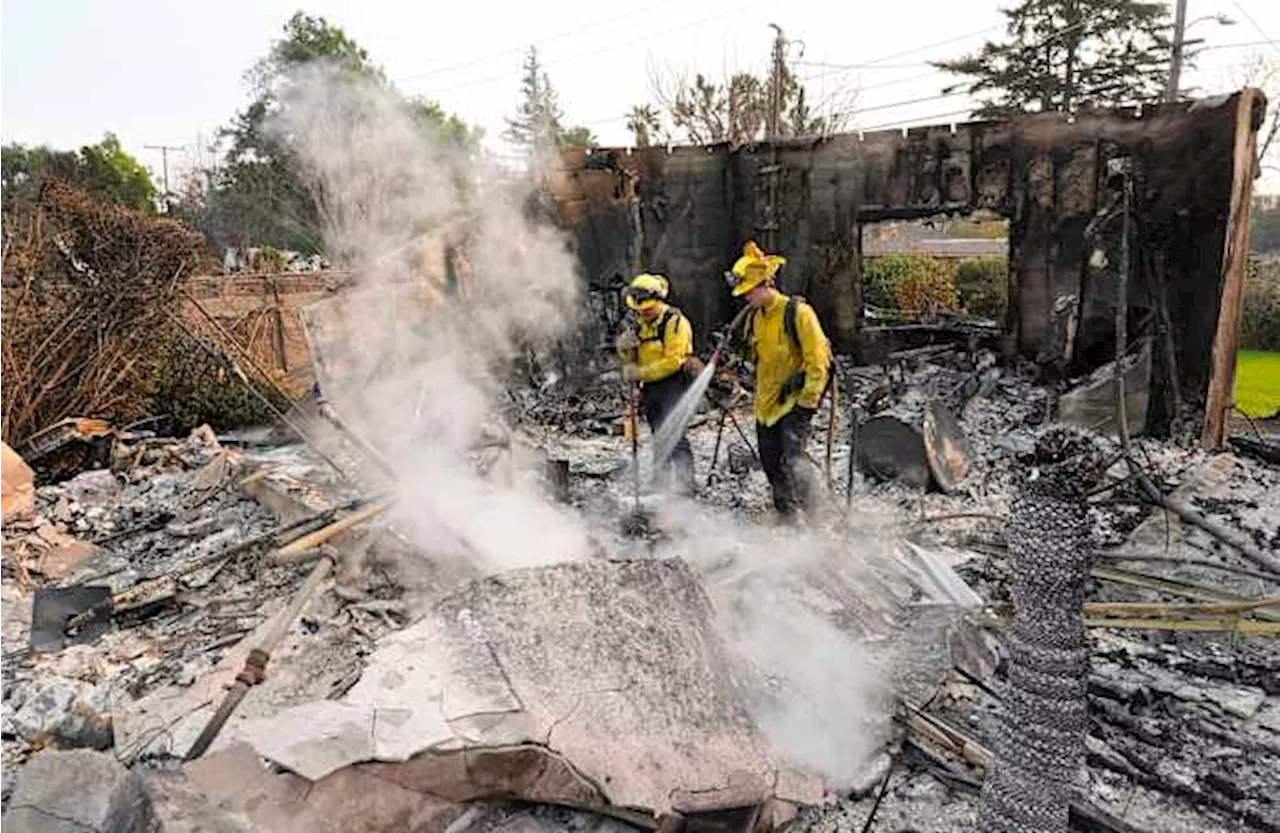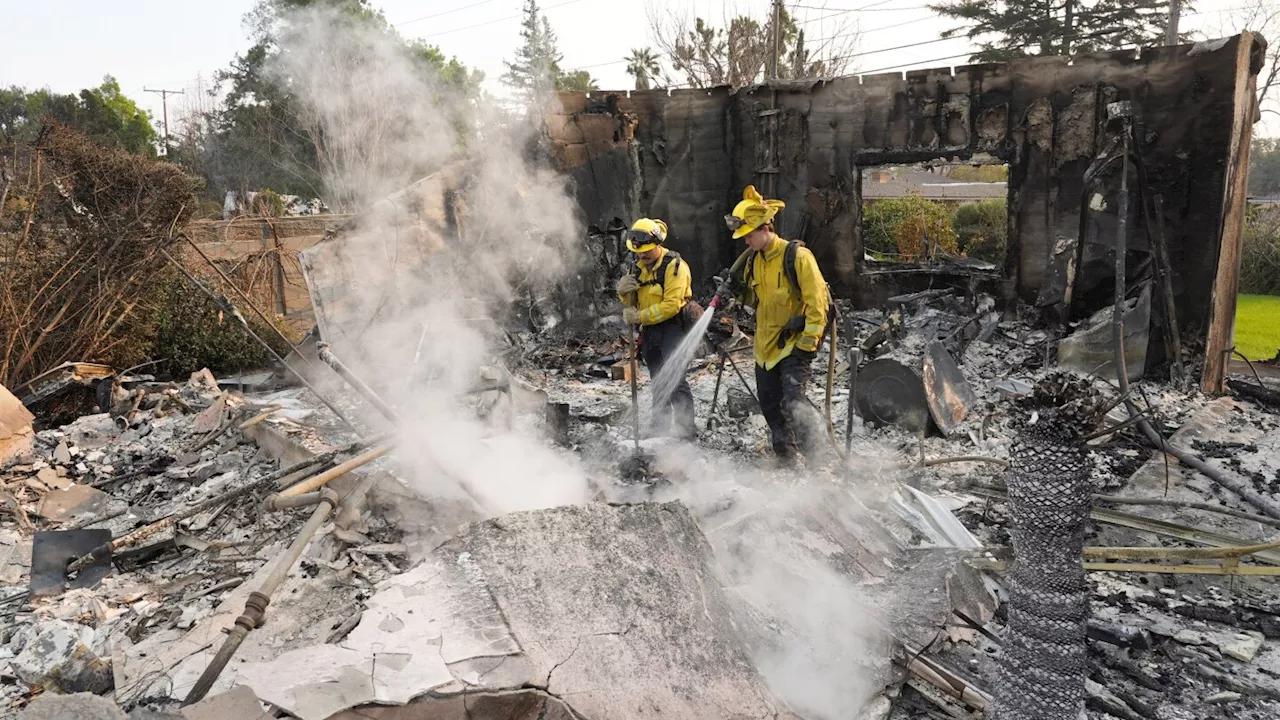This article warns about the increase in scams targeting people affected by disasters. It advises readers to be cautious of impersonators requesting personal information and to verify the identity of any individuals claiming to represent relief organizations or government agencies. The article also recommends taking steps to protect oneself from identity theft and fraud, such as reviewing credit reports and bank statements, securely storing personal information, and being wary of unsolicited requests for financial details.
Zelenskyy, Macron discuss Western troop deployment in Ukraine before German defense chief visitsThe Afternoon WireSenate committee to hold confirmation hearing for defense secretary nominee Hegseth on Jan 14Sam Darnold's career-best season ends with a thud as he takes 9 sacks in playoff lossHeidi Montag tops iTunes chart after losing house in Los Angeles wildfiresPolice took over a week to name the NYC subway burning victim. A fake name spread in the meantimeA.J.
“It’s something that’s unfortunately very common,” Layugan said. “After disasters, people are also particularly vulnerable to people saying you need to ‘act fast’ and using urgency to pressure people into taking actions that might not be in their best interest.” “After a disaster, people looking to rebuild will get a flood of contractors coming to them and saying they can help and they ‘know the system.’ Sometimes they’re looking for a quick payout,” Layugan said. “Be skeptical of anyone who promises immediate clean-up or immediate repairs. Oftentimes those types of individuals seek cash payments up front or do things without written contracts. Be very wary if anyone who wants cash up front or who urges you to ‘act immediately.
Scams Disaster Relief Identity Theft Fraud Prevention Consumer Protection
United States Latest News, United States Headlines
Similar News:You can also read news stories similar to this one that we have collected from other news sources.
 Federal warning: Scammers are hitting a new despicable low with latest targetMore information on what to do if you think you've been a victim.
Federal warning: Scammers are hitting a new despicable low with latest targetMore information on what to do if you think you've been a victim.
Read more »
 Holiday Scammers Target Online ShoppersAs holiday shopping ramps up, experts warn of increasingly sophisticated scams targeting online shoppers, particularly on social media. Scammers often impersonate delivery services, demanding personal information like credit card details or Social Security numbers to ensure package delivery. They may also pressure buyers to use third-party payment platforms for person-to-person sales, making refunds difficult. However, some social media platforms are rolling out tools to help users detect suspicious activity and avoid becoming victims.
Holiday Scammers Target Online ShoppersAs holiday shopping ramps up, experts warn of increasingly sophisticated scams targeting online shoppers, particularly on social media. Scammers often impersonate delivery services, demanding personal information like credit card details or Social Security numbers to ensure package delivery. They may also pressure buyers to use third-party payment platforms for person-to-person sales, making refunds difficult. However, some social media platforms are rolling out tools to help users detect suspicious activity and avoid becoming victims.
Read more »
 Holiday Scammers Target Shoppers OnlineExperts warn of increasingly sophisticated scams targeting holiday shoppers online, particularly on social media platforms. They advise caution against sharing personal information with suspicious individuals and using secure payment methods.
Holiday Scammers Target Shoppers OnlineExperts warn of increasingly sophisticated scams targeting holiday shoppers online, particularly on social media platforms. They advise caution against sharing personal information with suspicious individuals and using secure payment methods.
Read more »
 Scammers Target Cash-Sharing AppsScammers are exploiting popular cash-sharing apps like Venmo and PayPal to steal money. They use stolen usernames and passwords or sophisticated technology to guess passwords. The FBI warns of a surge in online fraud, with reported cases doubling since 2019 and losses nearly quadrupling to $12.5 billion last year.
Scammers Target Cash-Sharing AppsScammers are exploiting popular cash-sharing apps like Venmo and PayPal to steal money. They use stolen usernames and passwords or sophisticated technology to guess passwords. The FBI warns of a surge in online fraud, with reported cases doubling since 2019 and losses nearly quadrupling to $12.5 billion last year.
Read more »
 Text messaging scammers stole $2M in cryptocurrency from victims, NY attorney general's office saysNew York's attorney general says scammers stole millions of dollars in cryptocurrency from people seeking remote work opportunities as part of an elaborate scheme. State Attorney General Letitia James said Thursday that she’s filed a lawsuit in order to recover some $2 million stolen from New Yorkers and others around the country.
Text messaging scammers stole $2M in cryptocurrency from victims, NY attorney general's office saysNew York's attorney general says scammers stole millions of dollars in cryptocurrency from people seeking remote work opportunities as part of an elaborate scheme. State Attorney General Letitia James said Thursday that she’s filed a lawsuit in order to recover some $2 million stolen from New Yorkers and others around the country.
Read more »
 After disasters, people are especially vulnerable to scams. Here's how to protect yourselfDuring natural disasters like wildfires and floods, scammers often emerge to prey on victims.
After disasters, people are especially vulnerable to scams. Here's how to protect yourselfDuring natural disasters like wildfires and floods, scammers often emerge to prey on victims.
Read more »
